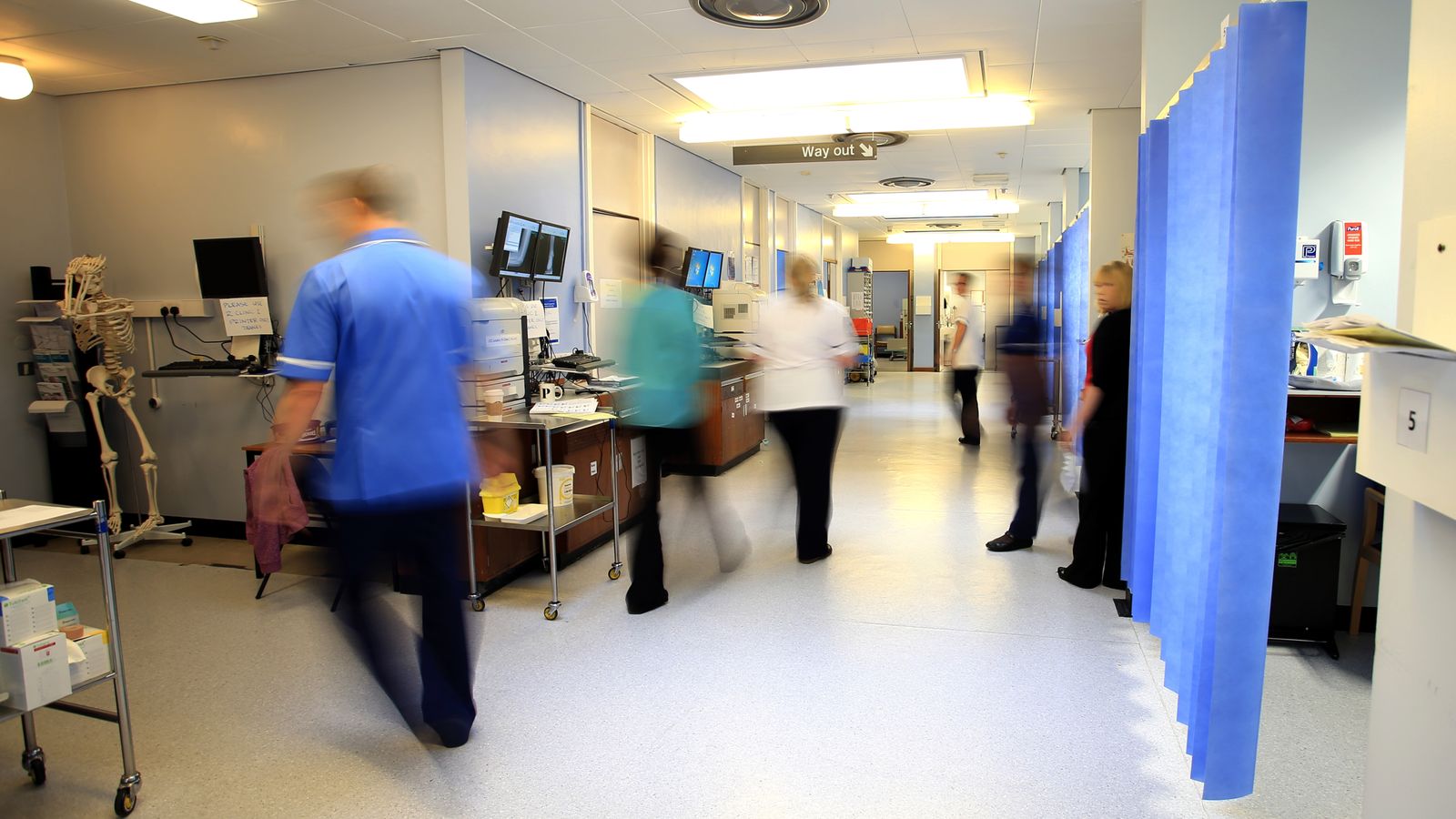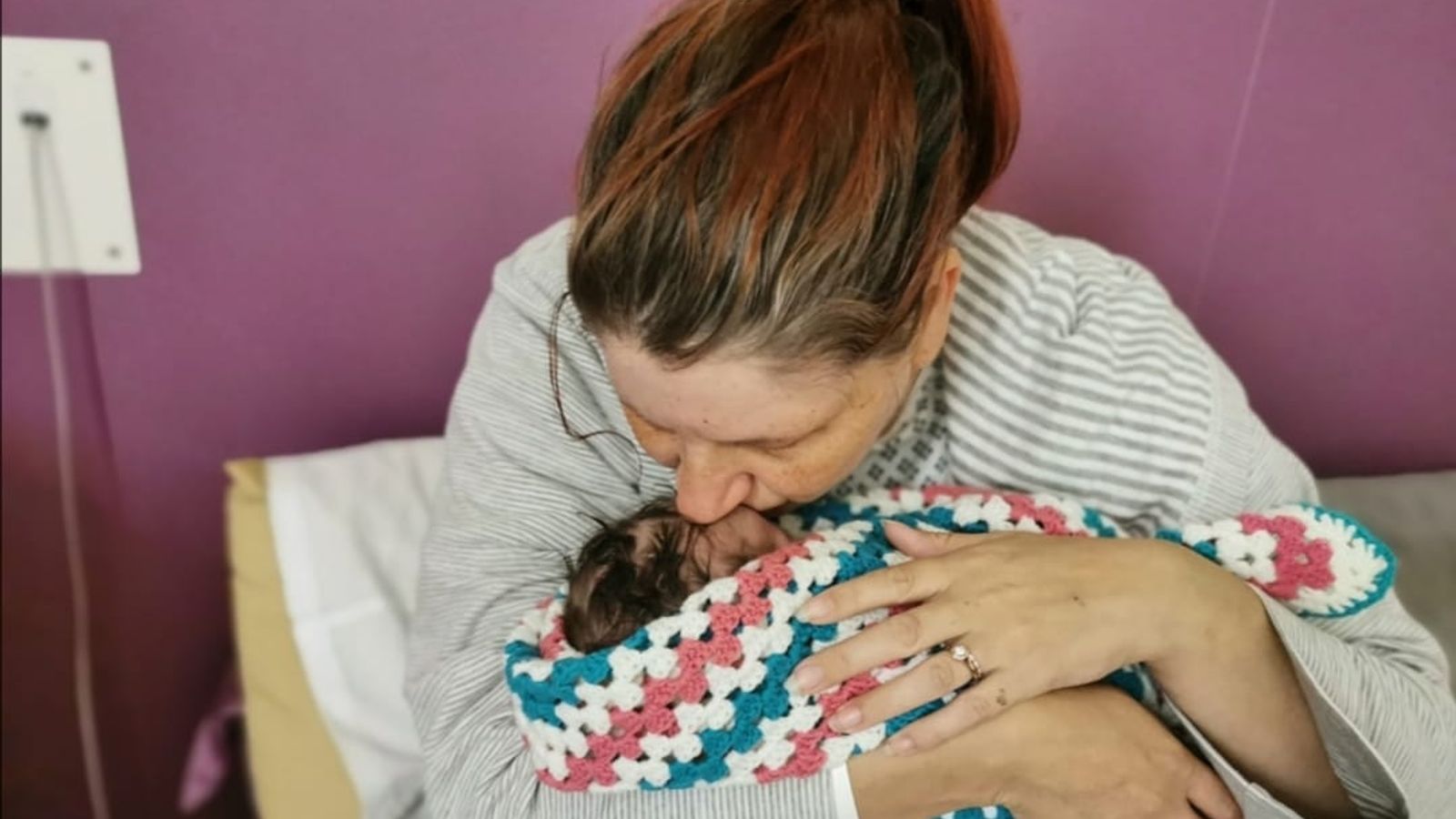Cost-of-living crisis: Nurses leaving for better-paid jobs in shops because ‘they can’t afford to work for NHS’

NHS staff are leaving for better-paid jobs in shops and hospitality because of the cost-of-living crisis, a report has warned.
According to NHS Providers, 68% of trusts are seeing a “significant or severe impact” from staff leaving for other sectors.
Senior figures within the health service say “huge numbers” of staff are taking second jobs outside of the NHS.
And the report also warns some nurses are skipping meals to feed and clothe their children – with frontline staff finding it difficult to make the journey to work because of rising costs.
Please use Chrome browser for a more accessible video player
26:42
Financial crisis: Your questions
Some 69% of trusts also said that the cost-of-living crisis was affecting their ability to recruit lower-paid roles such as porters and healthcare assistants.
One trust leader said: “For some staff, this is the final straw psychologically after two years of COVID.”
At least 61% of trusts have seen sickness rates increase towards the end of the month as pay packets run out – causing staff to be unable to afford travel into work, or due to mental health reasons.
Overall, 27% of trusts are offering food banks for staff, while a further 19% are planning to do so.
Several trusts have paid staff in advance for fuel, while others have assisted in buying school uniforms for their employees’ children.
Advertisement
There are also impact on patients – with 95% of trust leaders reporting that the cost-of-living crisis has “significantly or severely worsened local health inequalities”.
These patients have to make difficult choices around heating or eating, while others attend fewer appointments because of travel costs.
Soaring prices and bills have dented staff morale at a time when the health service has more than 132,000 vacancies, the report warns.
Miriam Deakin, director of policy and strategy at NHS Providers, said more nurses and staff are finding they are unable to afford to work in the NHS.
She said: “The sad fact is some (staff) can earn more working for online retailers or in supermarkets.
“Others are taking second jobs. We have heard of staff stopping their pension contributions and not being able to fill up their cars to get to work.
“The NHS already had a problem with vacancies and our fear is that will just get worse.
“The most worrying thing for us in the NHS is the very direct chilling effect the cost-of-living crisis is having on recruitment and retention.”
Please use Chrome browser for a more accessible video player
1:15
Truss: Right to ‘take decisive action’
‘A public health emergency’
Charities have also warned that high energy prices will harm children’s development this winter.
Some 24% of parents are buying less food since the start of the year, while 28% have cut back on the quality of food.
Meanwhile, 13% have eaten cold meals, or meals that require no cooking, to save money on bills.
YouGov carried out a poll of more than 4,000 UK households for National Energy Action and the Food Foundation.
NEA chief executive Adam Scorer said: “People have had to choose between heating and eating. This winter millions will not have even that choice.
“The most vulnerable, including children, will be cold and hungry as energy prices spiral, despite government support. The impacts on health and wellbeing are devastating and will only get worse after Saturday’s price rises.
“It’s a public health emergency.”

